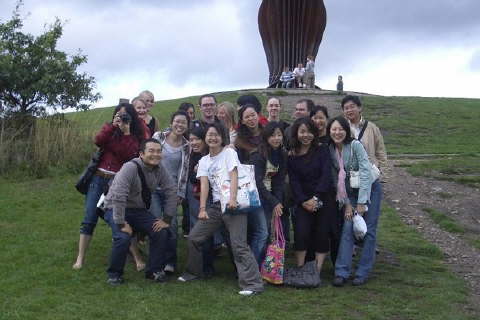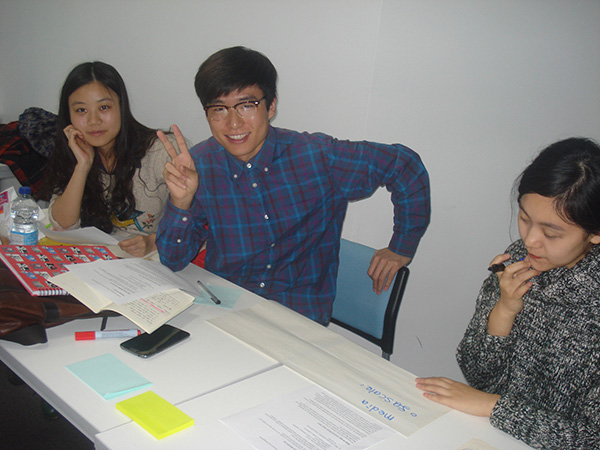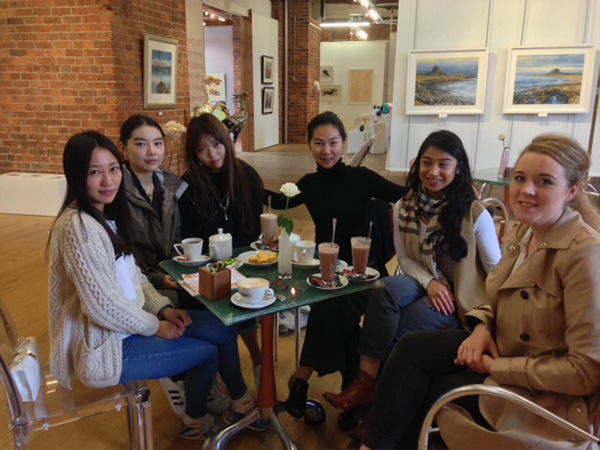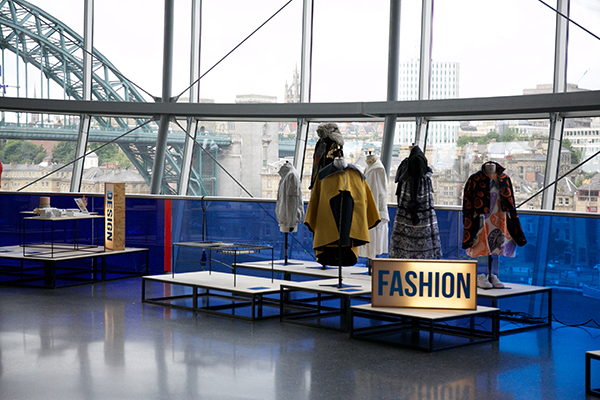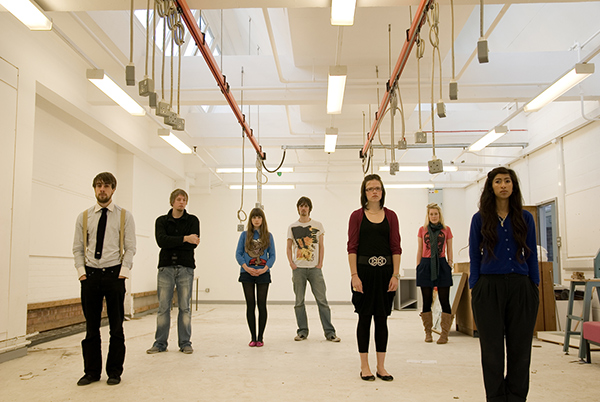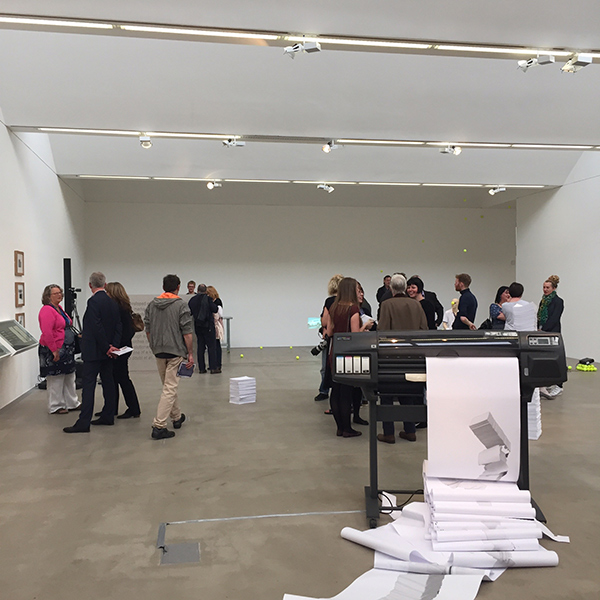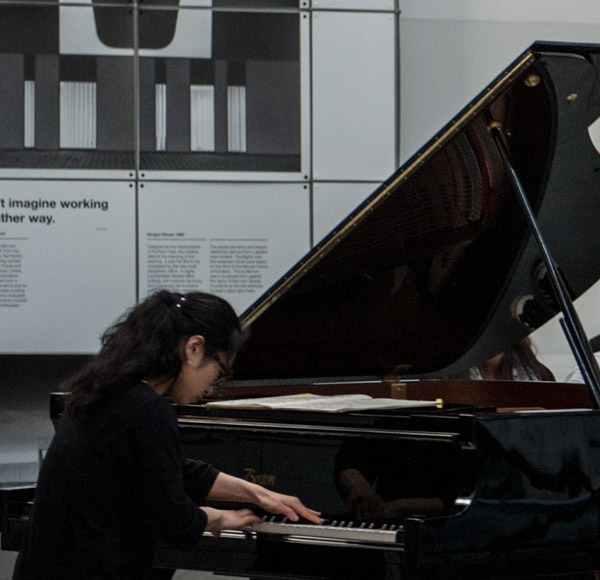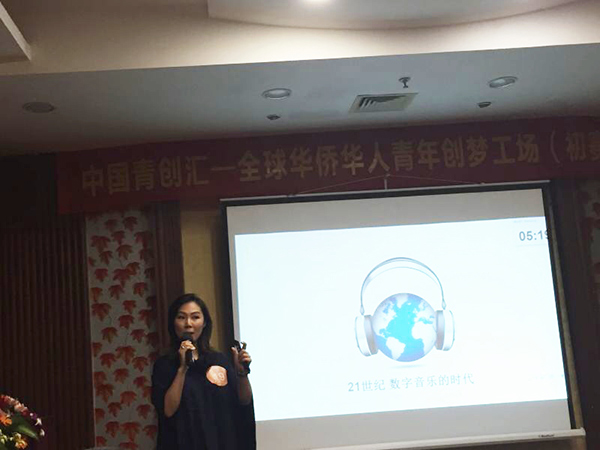-
Study
-
Quick Links
- Course Search
- Fees and Funding
- Unlock Your Potential
- Still time to Apply
- Higher and Degree Apprenticeships
- Continuing Professional Development
- Still time to apply
-
Undergraduate
- Application Guides
- UCAS Exhibitions
- Foundation Years
- School & College Outreach
- Information for Parents
-
Postgraduate
- Application Guide
- Postgraduate Research Degrees
- Flexible Learning
- Change Direction
- Register your Interest
-
-
International
International
Northumbria’s global footprint touches every continent across the world, through our global partnerships across 17 institutions in 10 countries, to our 277,000 strong alumni community and 150 recruitment partners – we prepare our students for the challenges of tomorrow. Discover more about how to join Northumbria’s global family or our partnerships.
View our Global Footprint-
Quick Links
- Course Search
- Undergraduate Study
- Postgraduate Study
- Information for Parents
- London Campus
- Northumbria Pathway
- Cost of Living
- Sign up for Information
-
International Students
- Information for Students
- International Events
- Application Guide
- Entry Requirements and Education Country Agents
- Global Offices
- English Requirements
- English Language Centre
- International student support
- Cost of Living
-
International Fees and Funding
- International Undergraduate Fees
- International Undergraduate Funding
- International Masters Fees
- International Masters Funding
- International Postgraduate Research Fees
- International Postgraduate Research Funding
-
International Partners
- Agent and Representatives Network
- Global Partnerships
- Global Community
-
International Mobility
- Information for Northumbria Students
- Information for Incoming Exchange Students
-
-
Business
Business
The world is changing faster than ever before. The future is there to be won by organisations who find ways to turn today's possibilities into tomorrows competitive edge. In a connected world, collaboration can be the key to success.
More on our Business Services -
Research
Research
Northumbria is a research-rich, business-focused, professional university with a global reputation for academic quality. We conduct ground-breaking research that is responsive to the science & technology, health & well being, economic and social and arts & cultural needs for the communities
Discover more about our Research -
About Us
-
About Northumbria
- Our Strategy
- Our Staff
- Place and Partnerships
- Leadership & Governance
- Academic Departments
- University Services
- History of Northumbria
- Contact us
- Online Shop
-
-
Alumni
Alumni
Northumbria University is renowned for the calibre of its business-ready graduates. Our alumni network has over 246,000 graduates based in 178 countries worldwide in a range of sectors, our alumni are making a real impact on the world.
Our Alumni - Work For Us
What will I learn on this module?
In this module, you will consider strategic leadership and management theories and the key business models applied in the different sectors of the cultural and creative industries. You will also reflect on your own management and leadership skills and development needs in the context of your own creative work now and in support of your future professional development in the creative and cultural industries. . The emphasis throughout the module is on working relationships and how cultural leaders and managers of the future can develop their practice and respond to the complex challenges of our time.
You will identify and reflect on the unique leadership and management skills, capabilities and understandings required to deal with such complexities. Cultural and creative organisations examined will include public-sector supported organisations and institutions at one end of the scale to micro businesses and individual creative businesses at the other end. You will consider the political, social and economic environment within which leadership and management practices areshaped and interrogate the way that cultural and creative sector leaders and managers respond to and work within this changing environment. You will be encouraged and supported to consider your own leadership and management skills development needs in support of your own career progression.
How will I learn on this module?
You will learn through a module framework of active engagement with academic theories of leadership and management, and from cultural and creative practitioners themselves including through field visits to cultural organisations.
This framework of learning will be supported by a process of self- development which will assist you in acquiring or enhancing the confidence and self- awareness required for being an effective cultural leader and manager: whether an artist, entrepreneur, theatre or gallery director for example. The fundamentals of ‘success’ are examined to shape your perspective and personal journey through the module. Management is seen as a process involving insight, intuition, creativity and risk-taking, as well as being a deliberately managed process, and this balance is sought through a mix of self- and skills-analysis.
How will I be supported academically on this module?
Your module tutor will play an active role in guiding you through module sessions, e-learning activities and one-to-one electronic and academic support as appropriate. Seminars, tutorials and guided and virtual visits will offer additional opportunities to identify and discuss issues and ask questions. Course materials will be made available on the relevant e-Learning Portal sites.
You can book tutorial sessions or online guidance sessions with the module tutor should you require any further clarification regarding the module.
At Department and Faculty level, Ask4Helpprovides a place to ask questions (eg. regarding timetables, late submissions and personal extenuating circumstances). Ask4Helpwill refer you to the correct university service if it cannot directly help you.
What will I be expected to read on this module?
All modules at Northumbria include a range of reading materials that students are expected to engage with. Online reading lists (provided after enrolment) give you access to your reading material for your modules. The Library works in partnership with your module tutors to ensure you have access to the material that you need.
What will I be expected to achieve?
Knowledge & Understanding:
1. 1. strategic leadership and management theories for cultural and creative industries.
2. 2. the key business models within different sectors of the cultural and creative industries.
3. 3. the skills needed for effective strategic management and leadership within the cultural and creative industries.
Intellectual/Professional skills & abilities:
4. 4. Ability to identify and communicate appropriate strategic management and leadership theory, tools, and skills for the cultural and creative industries.
5. 5. Critical reflection on own management and leadership skills and development needs within the context of the cultural and creative industries.
Personal Values Attributes:
6. Sensitivity and awareness of cultural diversity and culturally diverse needs in a global context
How will I be assessed?
FORMATIVE
Formative assessment will be carried out throughout the seminar sessions where you will discuss literature, issues and themes; undertake problem-orientated tasks; and complete regular e-tivities relating to a wider range of issues pertinent to leadership and management in the cultural and creative industries. Peer and tutor feedback, and self-reflection, will encourage sensitivity, ethics and curiosity. Tasks will encourage the ability to communicate effectively and to present yourself in a professional manner. Formative assessment will also be carried out through the briefing and development sessions in relation to the summative assessment.
SUMMATIVE
The summative assessment will be a case study report -3,500 words (70%) demonstrating your knowledge and understanding of the business model and the strategic management and leadership challenges and strategies of a cultural organisation, AND
A reflective essay – 1500 words (30%) – where you will undertake a critical reflection on your own management and leadership style and development needs.
Pre-requisite(s)
N/A
Co-requisite(s)
N/A
Module abstract
This module aims to develop your knowledge and understanding of strategic leadership and management theories and key business models applied in the cultural and creative industries. It will also enable you to reflect on your management and leadership skills and development needs in the context of your own creative work now and in support of your future professional development. The emphasis throughout the module is on working relationships and how cultural leaders and managers of the future can develop their practice and respond to the complex challenges of our time. The module content will be delivered through a series of lectures, interactive seminars, industry guest speakers and field visits to cultural organisations. At the end of this module, you will have the foundations you will need for effective management and leadership in your chosen sector of the cultural and creative industries.
Course info
Credits 30
Level of Study Postgraduate
Mode of Study 1 year Full Time
1 other options available
Department Northumbria School of Design, Arts and Creative Industries
Location City Campus, Northumbria University
City Newcastle
Start September 2025
All information is accurate at the time of sharing.
Full time Courses are primarily delivered via on-campus face to face learning but could include elements of online learning. Most courses run as planned and as promoted on our website and via our marketing materials, but if there are any substantial changes (as determined by the Competition and Markets Authority) to a course or there is the potential that course may be withdrawn, we will notify all affected applicants as soon as possible with advice and guidance regarding their options. It is also important to be aware that optional modules listed on course pages may be subject to change depending on uptake numbers each year.
Contact time is subject to increase or decrease in line with possible restrictions imposed by the government or the University in the interest of maintaining the health and safety and wellbeing of students, staff, and visitors if this is deemed necessary in future.
Useful Links
Find out about our distinctive approach at
www.northumbria.ac.uk/exp
Admissions Terms and Conditions
northumbria.ac.uk/terms
Fees and Funding
northumbria.ac.uk/fees
Admissions Policy
northumbria.ac.uk/adpolicy
Admissions Complaints Policy
northumbria.ac.uk/complaints



